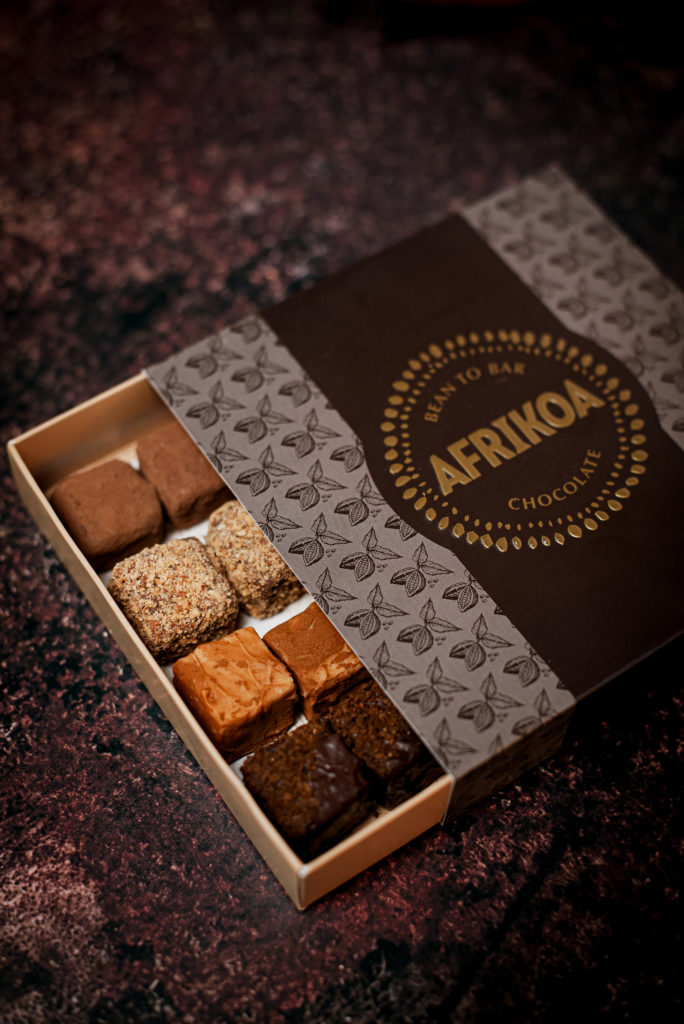Ghana and Côte d’Ivoire are key players in the global chocolate market, producing a significant portion of the world’s cocoa. Yet, despite their critical role, many farmers in these countries earn just around $1 a day. Enterprising chocolatiers are working hard to transform this scenario, ensuring that the benefits of cocoa cultivation extend to its producers.
British author Roald Dahl enchanted readers with Willy Wonka’s fantastical chocolate factory in his 1964 novel Charlie and the Chocolate Factory. While Dahl’s chocolate river was pure imagination, Africa’s cocoa industry is being reshaped by real-life innovators who believe the continent deserves its own golden ticket.
Kimberly Addison, co-founder of Ghana’s ’57 Chocolate, embodies this vision. Launched in 2016 with her sister Priscilla, their bean-to-bar company draws inspiration from Ghana’s 1957 independence and the spirit of high-quality local production.
Having spent part of her life in Switzerland, Addison was accustomed to gifting Swiss chocolate. However, during a farewell tour of a Swiss chocolate factory, she realized the irony: the cocoa beans used in Swiss chocolate largely came from Africa. This insight sparked her mission to bring Ghanaian chocolate to the world.
The challenge was evident—Ghanaian chocolate was nearly non-existent. Although Ghana and Côte d’Ivoire produce about 70% of the world’s cocoa beans, most are exported to Europe and the U.S. for chocolate production.
Axel Emmanuel Gbaou, from Côte d’Ivoire, faced a similar realization. Despite Côte d’Ivoire’s massive cocoa production, local chocolate was absent. A banker with a master’s in taxation, Gbaou pivoted to become a chocolatier, creating award-winning chocolates from beans sourced across the country.
Kyle Hickman, head chocolatier at AFRIKOA in Cape Town, South Africa, underscores the importance of quality ingredients. AFRIKOA’s chocolate, made from heirloom Tanzanian beans, is crafted with precision to ensure a smooth, refined texture. Their unique offerings include South African rooibos tea and Rwandan coffee.
Addison acknowledges the steep learning curve of chocolate-making, having trained in England before establishing ’57 Chocolate in Ghana. “It’s ironic that I had to go outside Africa to learn how to make chocolate, even though Ghana is a major cocoa producer,” she reflects.
Cocoa farming has deep roots in West Africa, introduced during the colonial era as a cash crop rather than a food item. Despite its significance, cocoa farmers often face financial struggles, exacerbated by rising cocoa prices and stagnant wages. Many farmers earn only $1 a day, leading to harsh realities like child labor.
Organizations like the International Cocoa Initiative are working to address these issues, focusing on education and economic empowerment, particularly for women. “Advancing women’s economic empowerment can lead to better investment in children’s education,” says Katie Bird, the initiative’s Communications Director.
Gbaou has taken steps to empower local women by teaching them how to create products from cocoa beans, providing a new source of income and economic independence.
Addison shares this commitment to investing in people. At ’57 Chocolate, the goal is to ensure that everyone involved leaves better than they came, fostering a sustainable future for cocoa cultivation.
The challenge now is to make farming appealing to younger generations. “Africa shouldn’t be a place to leave but a place to build and grow,” Addison believes.
Africa is no longer just contributing to the global chocolate industry—it’s creating its own space and inviting the world to enjoy its rich, diverse flavors.

